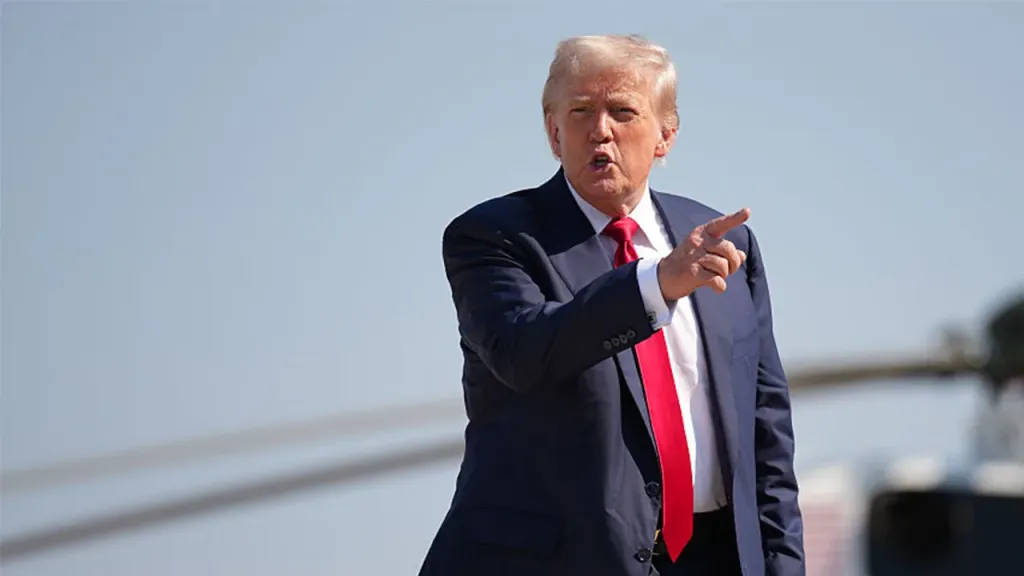In a forceful statement from the Oval Office, former President Donald Trump expressed his readiness to deploy federal resources, including the National Guard, to combat rising crime in Chicago and Baltimore. His remarks, made amid growing concerns about gun violence and public safety, have sparked backlash from local leaders and community activists.
Florida Man Arrested After Allegedly Running Over Woman Over Foot Fetish Request
What Happened in Trump’s Proposal
During a recent address, Trump signaled the possibility of federal intervention to reduce violent crime in major U.S. cities. Asked specifically about sending the National Guard to Chicago, Trump responded, “We are leaving,” though he did not specify a timeline.
He emphasized that the move was about ensuring public safety rather than politics, citing the rise in gun-related crimes in both cities as a reason for stronger measures.
Who Is Donald Trump?
Donald Trump, the 45th President of the United States, served from 2017 to 2021. Known for his direct and often controversial approach, Trump has consistently championed tough-on-crime policies. During his presidency, he prioritized federal involvement in local law enforcement, including deploying federal agents and National Guard units during periods of unrest.
His stance on crime and national security continues to shape his political influence even after leaving office.
Background and Timeline of Federal Intervention Debate
Trump’s comments fit into a broader national debate on how best to address urban crime. In the past, he has supported the deployment of National Guard units in cities such as Los Angeles and Washington, D.C., framing these moves as necessary responses to rising violence and civil unrest.
Reactions to his latest proposal have been swift:
- Illinois Governor JB Pritzker rejected the idea of federal intervention in Chicago, stressing the importance of state and local control.
- Maryland Governor Wes Moore and Baltimore officials voiced similar concerns, warning that outside involvement could erode community trust.
- Illinois Attorney General Kwame Raoul signaled the state’s willingness to legally challenge any forced federal deployment.
Activists in Chicago are preparing protests, demanding investment in education, healthcare, and job opportunities as alternatives to what they call “militarized policing.”
Public and Social Media Reaction
The proposal has ignited heated debate across the political spectrum. Supporters argue that federal action is necessary to restore order in cities suffering from persistent violent crime. Critics counter that such measures would undermine local autonomy and escalate tensions without addressing the root causes of violence.
On social media, the topic has trended widely, with political commentators, community leaders, and everyday citizens weighing in. Many Chicago and Baltimore residents expressed fears that increased federal presence could lead to over-policing and strained community relations.
Official Responses and Next Steps
Trump remains firm that deploying federal resources is the right path, while local leaders continue to resist outside intervention. Baltimore Mayor Brandon Scott pointed to recent progress in reducing gun violence, stressing that locally driven strategies are already producing results.
With legal challenges looming, the conflict over federal involvement could head to the courts, setting the stage for a broader battle over state versus federal authority in managing crime.
Conclusion
Donald Trump’s call to send federal resources into Chicago and Baltimore underscores the deep divide over how to address urban crime in the United States. While supporters see it as a necessary step toward restoring safety, opponents argue it risks eroding community trust and local authority. The clash highlights an ongoing national debate—whether crime should be fought through military-style federal action or community-centered local initiatives.
